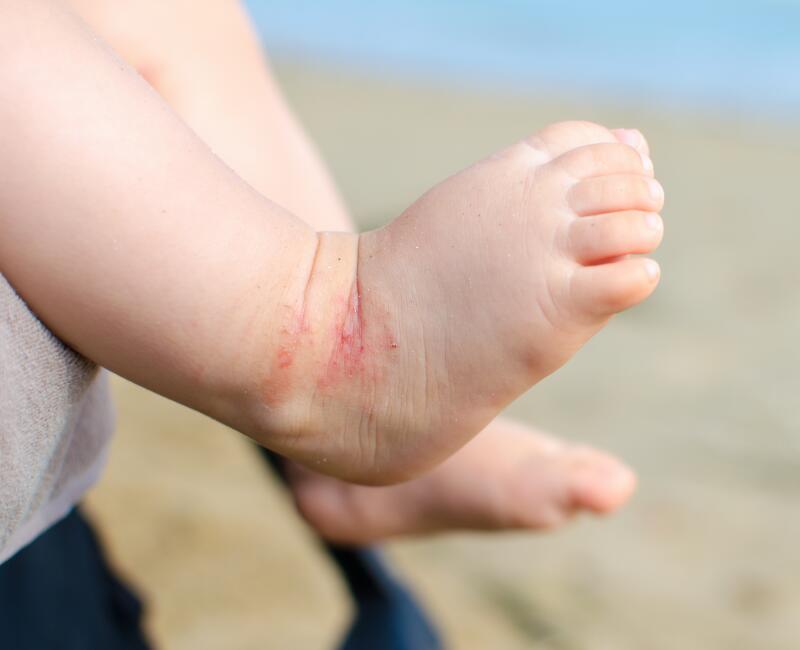-
Your concerns
Our articles to help you gain a better understanding
-
Our solutions
-
Ducray Dermatological laboratories
Our articles to help you gain a better understanding

Eczema can affect the entire body, "from head to toe". Feet are the subject of this article. Eczema on the feet is associated with severe itching, which is particularly bothersome in everyday life.

Summary
The symptoms of foot eczema are quite varied and depend on the initial cause of the eczema:
Finding the cause of foot eczema allows for rapid implementation of appropriate treatment and/or avoidance measures in case of contact eczema.
The treatment of foot dyshidrosis and foot dermatitis in general, is based on the application of cortisone creams and emollients. In the evening before going to bed, apply the treatment in generous layers and put on a pair of cotton socks.
To avoid new flare-ups of bullous eczema of the foot, limit the risk factors of plantar dyshidrosis such as heat, humidity, perspiration or stress.
Skin prone to atopic eczema, contact eczema, chronic eczema and/or, eyelid eczema
NEWSLETTER
Dermatological expertise
To better understand your skin and hair, discover our exclusive content and innovative care products designed to improve your quality of life..